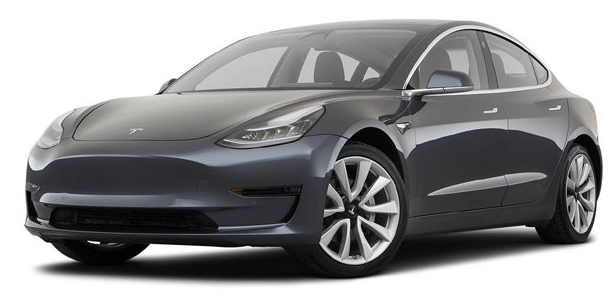Using your phone as a key is a convenient way to access your Model 3. As you approach, your phone’s Bluetooth signal is detected and doors unlock when you press a door handle. Likewise, when you exit and walk away with the phone key, doors automatically lock (provided the Walk-Away Door Lock feature is turned on; see Walk-Away Door Lock).
Before you can use a phone to access Model 3, follow these steps to authenticate it:
- Download the Tesla mobile app to your phone.
- Log into the Tesla mobile app using your Tesla account username and password.
Note
You must remain logged in to your Tesla account to use your phone to access Model 3.
Note
If multiple vehicles are linked to your Tesla account, you must ensure that the vehicle you want the mobile app to access is currently selected on the mobile app.
- Ensure:
- Your phone’s general Bluetooth settings are enabled.
- Bluetooth is enabled within your phone’s settings for the Tesla mobile app. For example, on your phone, navigate to Settings, choose the Tesla mobile app, and ensure the Bluetooth setting is turned on.
- Access to your location is enabled. Open the Tesla mobile app in your phone’s settings and select . For the best experience, keep the mobile app running in the background.
- Allow Mobile Access is enabled on the vehicle touchscreen ().
Note
Model 3 communicates with your phone using Bluetooth. Keep in mind that your phone must have enough battery power to run Bluetooth and that many phones disable Bluetooth when the battery is low.
- While sitting inside the vehicle with a key card handy, open the Tesla mobile app and touch Set Up Phone Key on the main screen, or navigate to . Follow the prompts on the mobile app and vehicle touchscreen to set up your phone key.
To view a list of keys that can currently access Model 3, or to remove a phone key, touch (see Managing Keys). Model 3 can connect to three phone keys simultaneously. Therefore, if more than three phone keys are detected and you want to authenticate or pair a different phone, move the other connected phone key(s) out of range or turn off its Bluetooth setting. Once a phone has been authenticated, it no longer requires an internet connection to be used as a phone key for Model 3. However, to use the phone hands-free, access your phone’s contacts, play media from it, etc., you must also pair it and connect it as a Bluetooth device (see Pairing a Bluetooth Phone).






